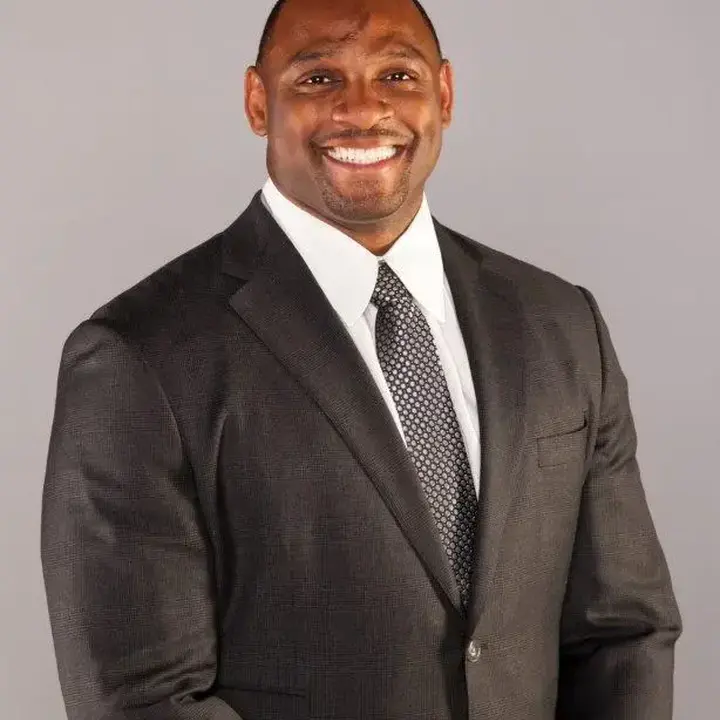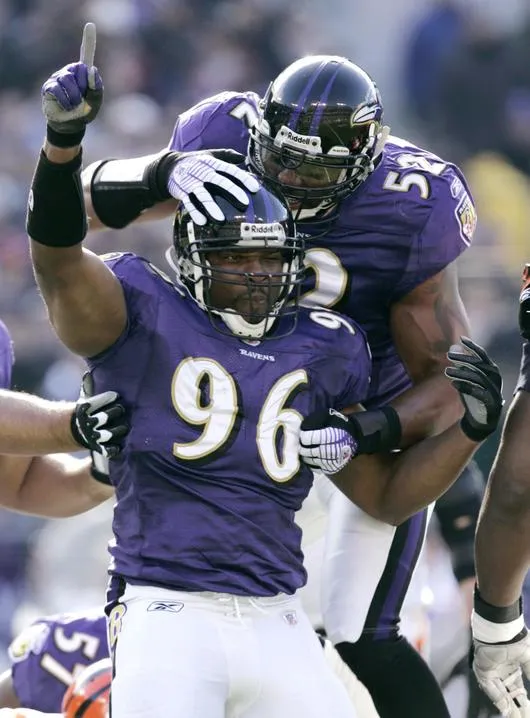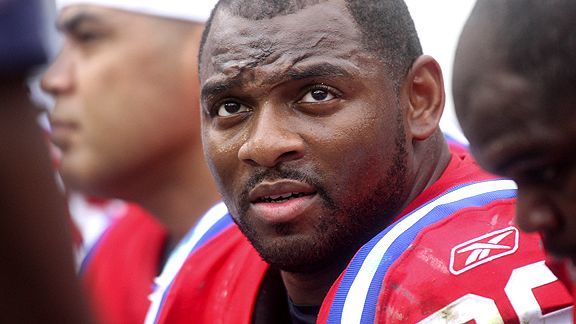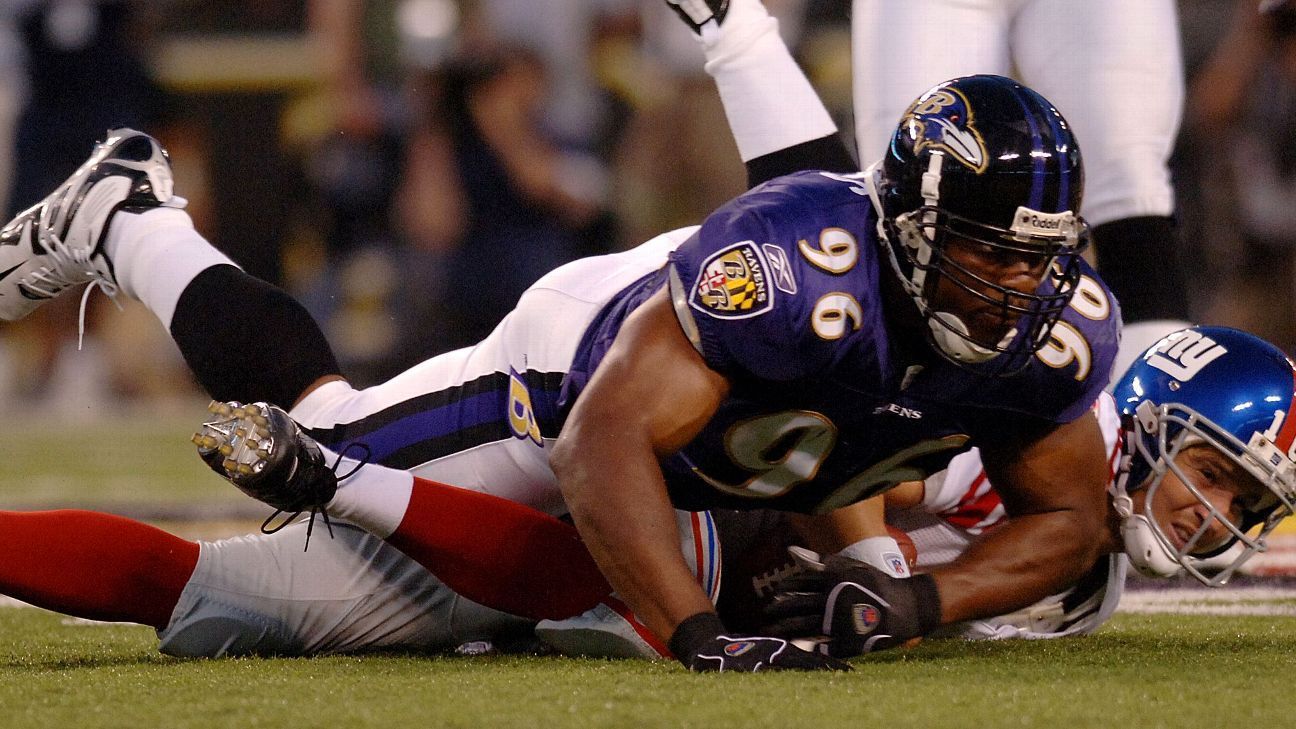
Catching Up with Former Player Rep: Adalius Thomas
Former NFL linebacker, Adalius Thomas, spent 10 seasons between the Ravens and the Patriots. Adalius attended The University of Southern Mississippi and was drafted in the 6th round of the 2000 draft. He is a Super Bowl champion, a 2X Pro Bowler, and a 2006 First Team All-Pro selection. We caught up with Adalius, who gave us insight into his life during and after football.

What is your proudest moment as a Player Rep?
I think just getting to represent your players. By far one of the greatest feelings is for someone to elect you to be their representative and to know they think highly enough of you or that you have exemplified your care for others and were really being considered. It can show both empathy and leadership and I think that's a great responsibility to have especially as the older you get, the more you embrace it. It’s a tough position to be in too because while you are with coaches’, people want you to say certain things, want you to act a certain way, and there are a lot of guys that have lost their jobs because they're Player Reps and that's a tough position to be in. But it's one of the things that you are, and you need to be very selfless because you can't really think about your point of view. You must really embrace different perspectives; from a guy who's doing league minimum to someone who is one of the highest paid at their position and trying to find what works for best for the future of both parties. Guys may not see it now, but all of us will someday be former players and so trying to find that happy ground of trying to serve high-end and minimum wage. That's a tough thing to do, but it was also a very fulfilling position.
What was your experience like as a Player Rep?
The experience was great, I got a chance to meet a lot of guys and learn a lot. I think it helped me from a leadership standpoint to understand the political side and the give and take of negotiating with owners and understanding the history of where the league came from to where it was trying to go. Going from salary cap to total football revenue to all the different things and understanding what the teams did and didn't want to happen was very interesting. I guess owners didn't want to share revenue share from the top to the bottom, so just having a better understanding of how the business side works as a Player Rep was very fulfilling for me. It allowed me to again get a better understanding of how business-minded this league is overall and how you must position yourself and recognize that it's a game of chess, not a game of checkers.

How has your career been since transitioning out of the league?
I would say slow because I left the game unexpectedly and when you think you're going to play again and have to sit around and wait for a call, it's a little different than a planned exit. You find yourself working out and doing all the right things and trying to find who you are. You've been doing something since you were a kid and it’s tough trying to understand all the emotional roller coaster moments that you go through with your mental health. You don't understand it, and so the transition was a little tough for me to go through because I thought I could still play the game but was not given the opportunity to play for one more season. It was a tough adjustment for me, and I think that having patience with yourself is very important. Whatever it is that you're feeling is okay and I think it is valuable to learn how to communicate when you're not okay. It's a coping skill that you have to learn and be able to express yourself when you're frustrated or upset in a calm way. It's a skill set that I had never practiced or understood until the transition. It's just being able to express yourself when you're not really feeling like you. It's kind of like the Snickers commercial, you know, you're not you.
What is the biggest lesson you have learned from your experience in the league and how do you apply it to your life now?
Savor the moment and understand where you are in life but also think about 5 and 10 years ahead if you can and if you have an idea of what you want to do, work on making those connections while you're in the game. I say this because when you’re out people don't answer your call the same way they do when you're in it so I would say take advantage of the relationships that you have right now. I would take advantage of all the resources that you have as well because once you're out, you are a former player, and some former players have the luxury of picking and choosing where they go next but others don’t. I'm not talking just about quarterbacks, they can kind of go where they choose to go, and most times they choose when they retire but whatever the position, more people don't have the luxury of choice.
I would also say take advantage of learning how to communicate with CEO's and businesspeople. Then when you get those cards from them, send them an email within the first you know 24-48 hours saying nice to meet you, I met you at this place. Little things like that will help you when you get out of the game because it'll be second nature for you at that point to reach out and contact people.
What is one piece of advice you wish you had known before transitioning into life after football?
I would say play the game on and off the field because there's perception in there that’s also reality. Being a Player Rep allowed me to see that a lot and being in two different organizations allowed me to see that more as well. It is a lot different everywhere, you know, Baltimore is different than New England, but both were great places to play at and see two different coaching styles.

What milestones have you hit in your current career that you are most proud of?
My son graduated from college and my daughter is in college looking to graduate in the next couple of years. I'm a Pop-Pop now and getting a chance to meet my grandson is one of my proudest moments. I am also proud of being able to transition and run my own business and work for myself. I established a business with my partners and have been successful since 2012. I would say that is a big accomplishment but also being able to come through a pandemic in the restaurant business and not have to close any due to the pandemic is a success story within itself.
What characteristics from the game do you apply to everyday life?
Communication sets expectations from the beginning. There are a lot of people out there that are not in your best interests. Your circle will shrink and it's okay because you either grow together or you grow apart and there's nothing wrong with either one of them. As the saying goes, you can love someone and still choose to say goodbye. So, I understand the power of no and being able to really identify the things that you're looking for or need and being honest with yourself about a partnership because the very things that you are noticing, in the beginning, will become your demise at the end. When you see red flags and you have that gut feeling, trust it. I've had bad investments, I've had bad partners and it's like, man, I can't believe this. But if I really go back and look at them, I recognize that these signs were there in the beginning and I choose to ignore them. Things and people will always show you who they really are, believe them. Accept it and don't be the clown to show up to the show.